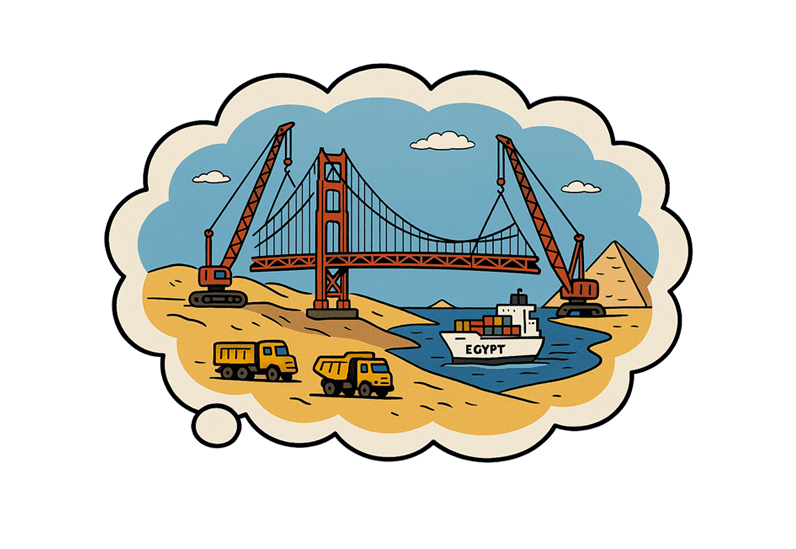Startup to Scale-up: How Translation Technologies Help SMEs Grow

The continuing advancement of artificial intelligence has given birth to translation technology that is now helping streamline the process of interlingual communication, especially for businesses trying to reach a global audience.
Translation technology — software used to aid in translation of written text — has become essential in today’s interconnected world. It is an excellent supplement to the specific expertise, cultural sensitivity, and decades of experience provided by translation agencies.
Up until recently, translation technologies were seen as expensive and inaccessible for smaller businesses. They used to be confined to big corporations with the resources to spare. But as they become more cost-effective, the playing field is levelling up with SMEs now able to reap the benefits of translation tech.
Why Translation Tech is Vital for SMEs to Scale Up
It’s worth noting that while this technology has progressed in leaps and bounds over the decades, it is still not capable of translating cultural nuance. For the foreseeable future, humans remain a crucial part of the process, especially for maintaining the quality of the translated text.
While they may seem to be at odds with each other, translation technologies actually support the day-to-day work of translation agencies. This includes computer-assisted translation or CAT tools (a series of software applications like term bases, translation memories, and terminology management), as well as machine translation (which allows for quick translation of vast quantities of text).
These software solutions help smooth the frictions involved in localisation, allowing SMEs that work with translation agencies to scale up at speed, whilst maintaining quality and striking the balance with costs.
Translation agencies, supported by translation tech, can assist you in going global, enabling you to:
1. Access New Markets
SMEs are increasingly looking to use translation to overcome the language barrier that has long plagued international reach. A localised website is essential to breaking into new target markets.
In fact, the European Commission’s survey on SMEs and multilingual websites showed that 44.7% of respondents wanted a German version of their website, 40.6% wanted English, 37.9% French, and 28% Spanish. This interest extended outside the EU as well, with 24% indicating demand for a Russian version of their website, 17% for Chinese, 13.8% for Arabic, and 10.5% for Japanese.
Translation agencies that use translation tech already have access to well-maintained translation memories and term bases, as well as highly trained machine translation platforms that know the local culture and industry, making them priceless partners in your goal to expand.
2. Understand Local Markets
Breaking into new markets is only the first step toward expansion. Making your brand relatable to the local market is also critical if you want them to adopt your product or service.
Professional translation agencies are attuned to the target culture and context. The most skilled translators use software as tools to maintain the existing style, while tone, intent, and emotional impact of your content are carried from one culture to another by the translators themselves
Working with translation agencies — with their innate, immersed knowledge of your target culture — means that you will gain a profound understanding of your new market. You can use this knowledge to tailor products and services that will specifically appeal to them.
Through this, you can also provide better support in their language, especially since 75% of consumers are more inclined to repeat purchases from a brand if they receive localised post-sales customer support.
3. Create Brand Messaging that is Consistent and Coherent
Translation tech allows a translator to stay on the same page regarding the key words and phrases you regularly use in your business. These include jargon used in your industry, phrases used in your daily operations, and entries in your catalogue of products and services.
Consistent and coherent messaging is especially helpful for external communications and marketing strategies. Optimising for multilingual search visibility, for instance, may require a new set of keywords that translation tech can help with. It’s also not generally recommended to literally translate content from one language to another, as the quality may be poor which Google frowns upon.
If you’ve already invested in digital marketing, keeping a library of terms specific to you will be invaluable as you transition to markets with different languages. Translation agencies use software with functions that can keep these keywords accessible and centralised, allowing you to retain the context of your terminologies as much as possible while you target foreign markets and languages.
4. Improve Sales
A website that functions in your target market’s local language directly correlates to sales.
In 2020, e-commerce payment processor Stripe found that 74% of checkouts did not use the local language of the country from which customers originated. This oversight makes it one of the major contributors to 9 out of 10 lost sales in Europe due to checkout failures. Simple translations like adding a postcode field for those using a UK card or changing the field to a ZIP code for those using an American card can make a huge difference.
Similarly, 76% of consumers with English-language competence prefer to purchase products with localised information, according to a CSA survey of nearly 9,000 online shoppers from 29 countries including Germany, France, Spain, China, Japan, Brazil, and Indonesia. Of consumers without competence in English, the preference rises to 89%. An astonishing 40% of all respondents, meanwhile, stated that if a website was in another language, they would not make a purchase.
Clearly, effective localisation is needed for better sales performance in new markets. And with 86% of translators saying they can provide deliverables faster through translation tech, your international platforms will be up and running in no time while still ensuring that terms are uniform across your language pair.
5. Promote an Inclusive Workforce
The benefits of going multilingual is not limited to reaching a wider customer base. Expansion into new markets will attract talent from those places as well.
Even though you may require new international hires to be able to communicate in English, they may be more comfortable receiving or giving information in their first language. This is especially crucial in instances like communicating your goals with your team or establishing the rules for workplace safety.
Team members will feel more welcome and be more likely to contribute if you localise your company guidelines in their language. Staff will feel more encouraged to provide better feedback if you provide the environment that lets them do so in the language they know best. Even better, McKinsey & Company found that a diverse workforce improves a company’s financial performance.
Translation Tech Empowers SMEs
Over the years, SMEs have shown significant interest in translation services to advance their business. The European Commission revealed that 23% of SMEs hired external translation services for their websites, with an expectation of 32% turnover increase on average if additional languages were used.
Localising your business, bolstered by translation tech, will help move the needle for your global expansion. In fact, translators who used these technologies believed that the quality of their work was higher when they used software functionalities like term bases and translation memories. With technology supporting your translation agency of choice, you’ll be able to scale your business quickly, easily, and affordably.
Spearhead your entry into these untapped markets with the help of an experienced translation agency supported by robust translation technology that will grant you international reach with local insight. Get in touch with us today and find out how this can work to your advantage.






